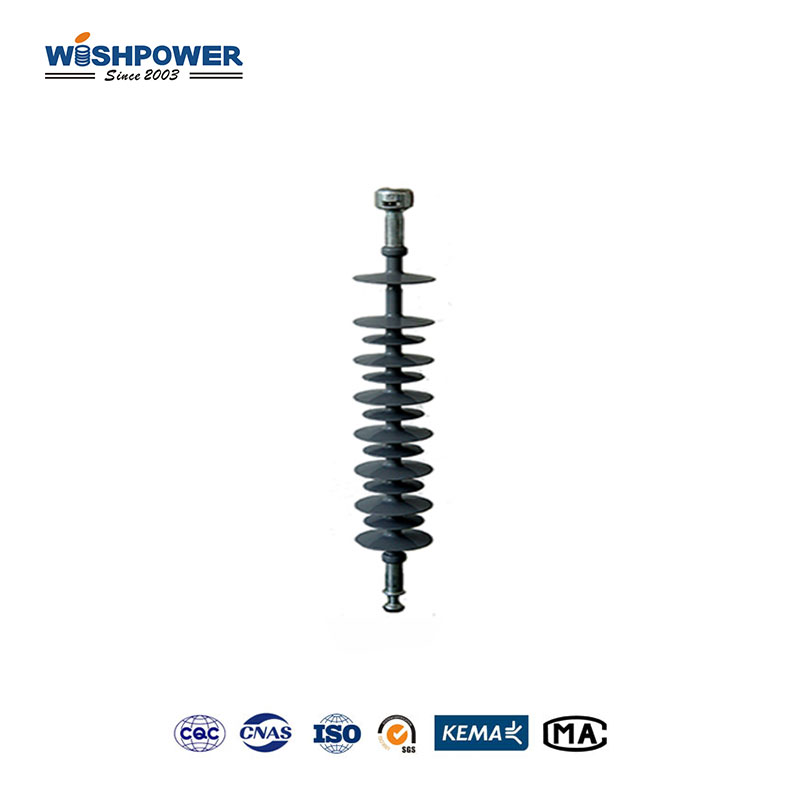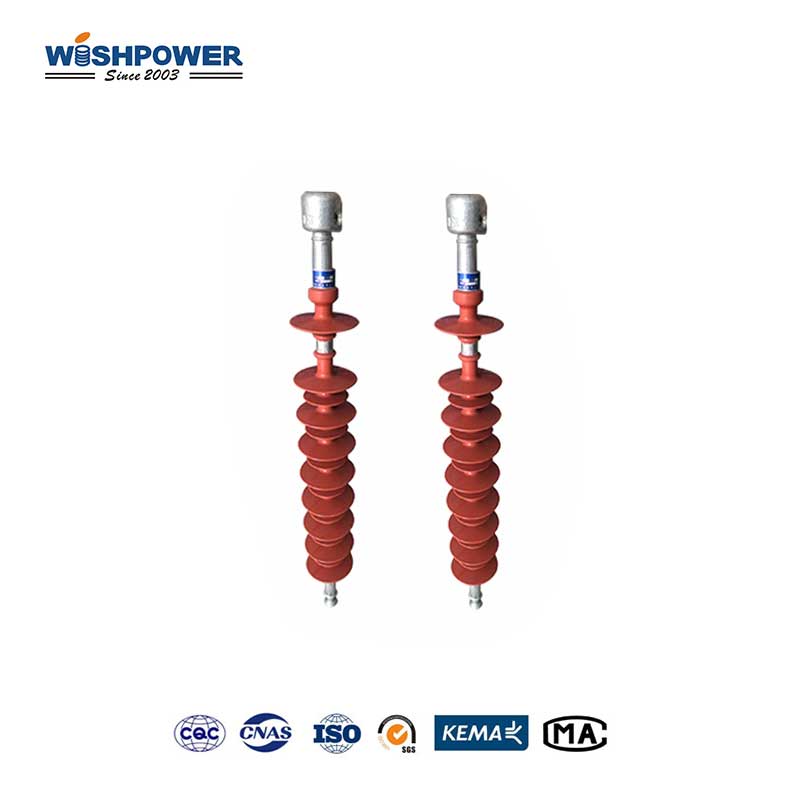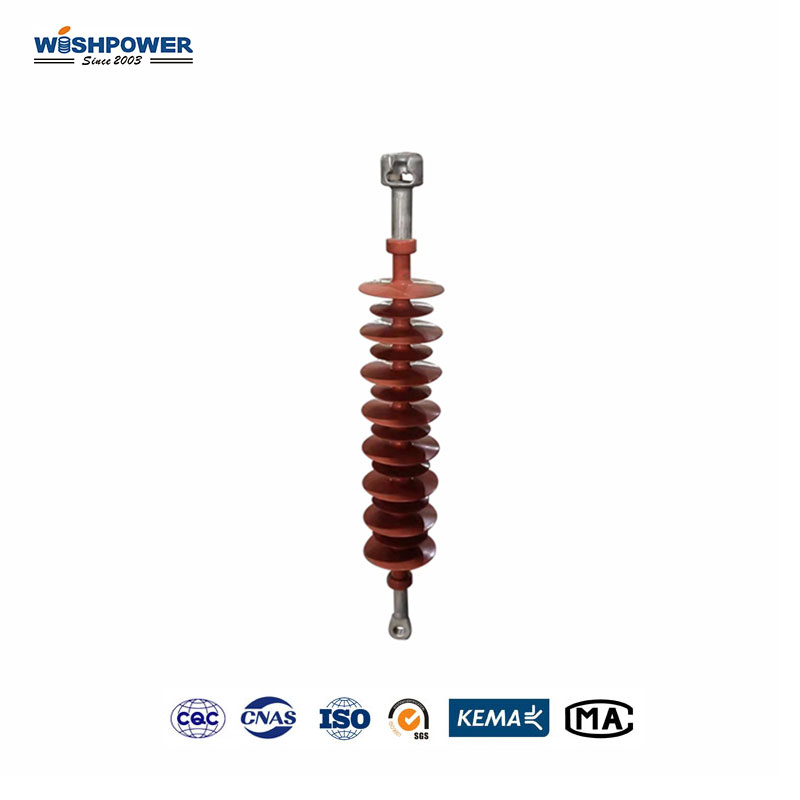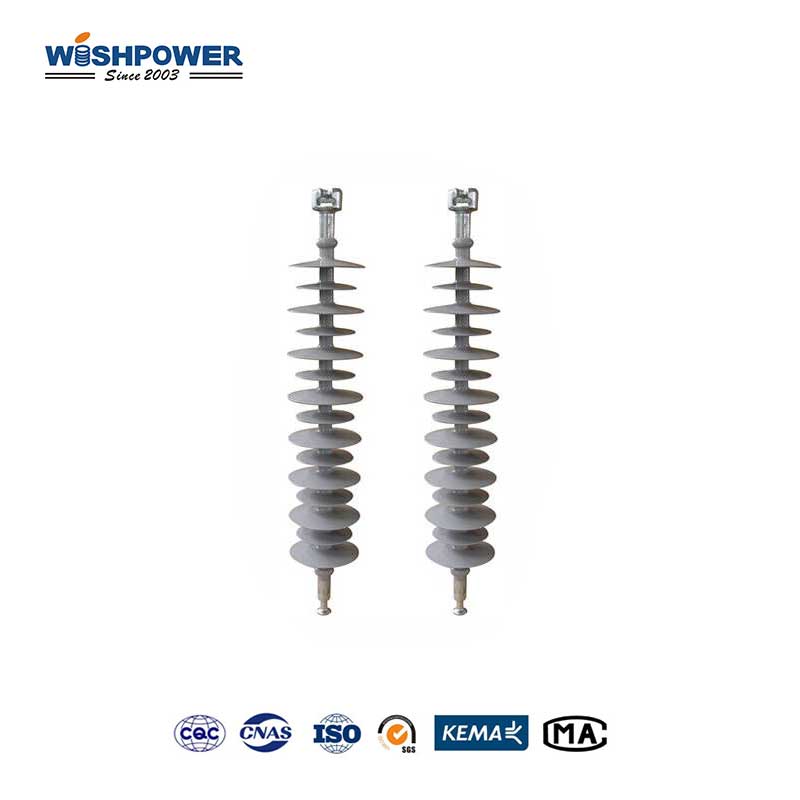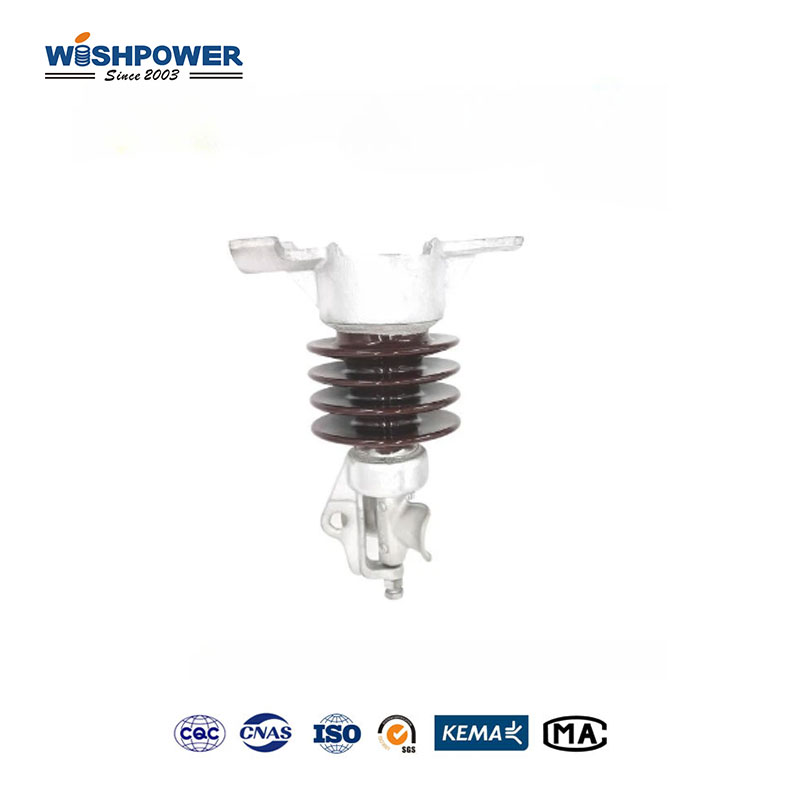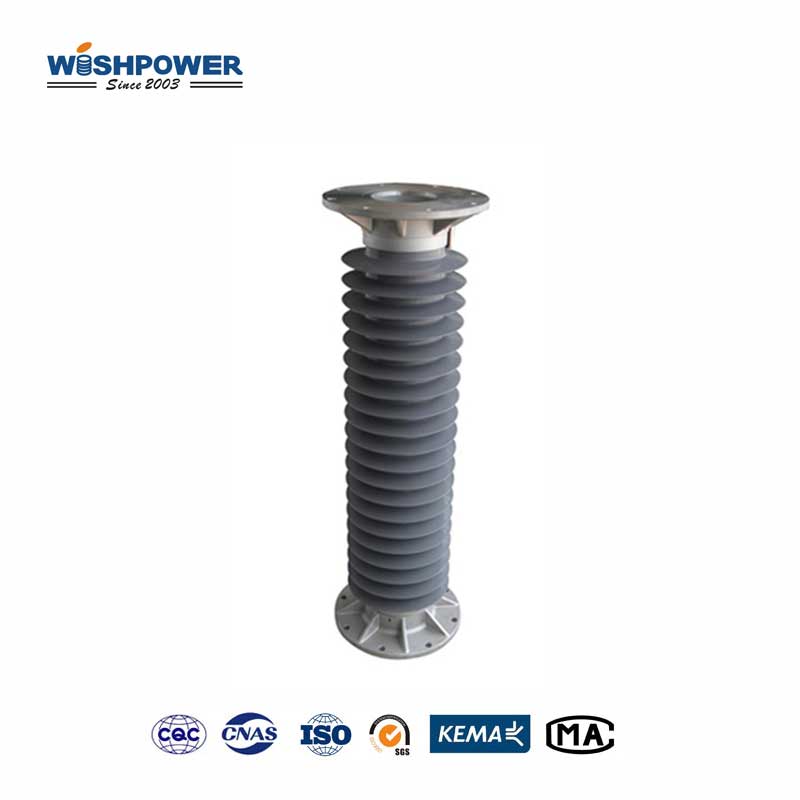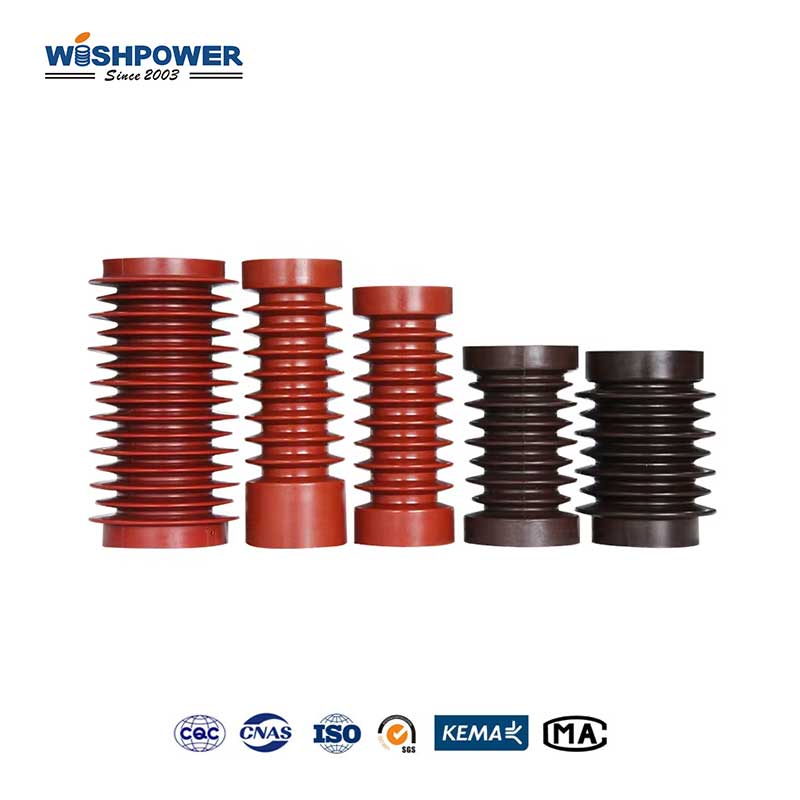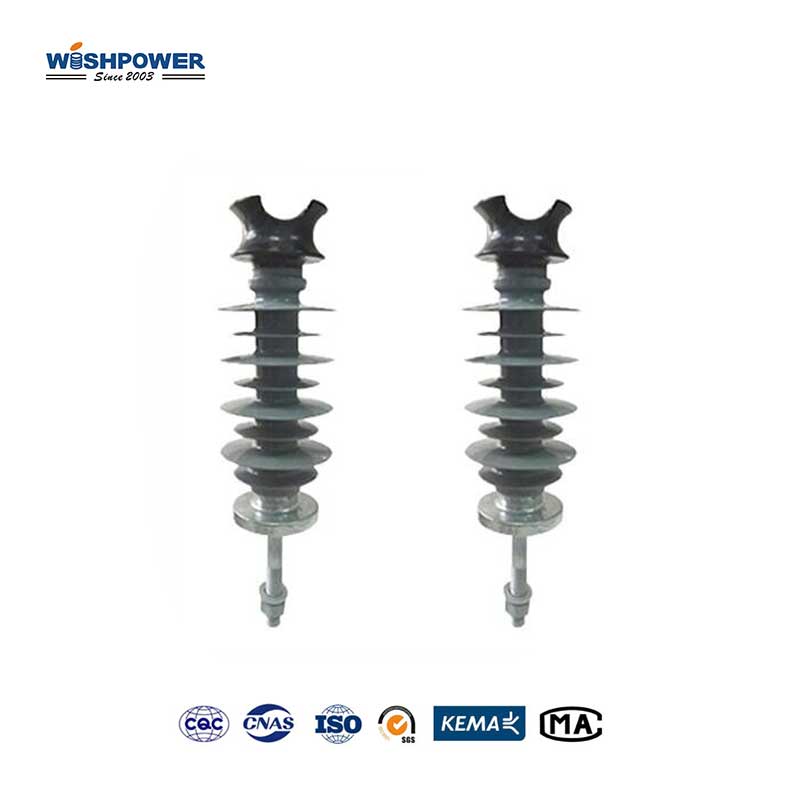Specification
| Type of Insulator |
FXBW-500/(420/400) |
FXBW-500/(550/530) |
| Specified Voltage |
500 kV |
500 kV |
| Specified Mechanical Tensile Load |
420/400 kN |
550/530 kN |
| Connection Structure Mark |
28 |
32 |
| Section Length |
4450±50 mm |
4450±50 mm |
| Min. Arcing Distance |
4000 mm |
4000 mm |
| Big shed Diameter |
190 mm |
218 mm |
| Diameter of Grading Ring |
350/370 400 mm |
350/370 400 mm |
| Diameter of Grading Ring |
370/400 mm |
370/400 mm |
| Min. nominal Creepage Distance |
14000 mm |
14000 mm |
| Lightning Impulse Withstand Voltage(peak value) |
≥2250 kV |
≥2250 kV |
| Operating Impulse withstand Voltage(Peak) |
≥1240 kV |
≥1240 kV |
| Power Frequency WithstandVoltage Min.Wet(RMS) |
≥740 kV |
≥740 kV |
| Reference Weight |
33 kg |
34 kg |
The table above is just one of our product parameters. If you want more information, please get in touch with info@wishpower.net or download the file below.
What is the Composite Long Rod Insulator?
Composite long rod insulators are high-strength insulating devices made for high-voltage transmission and distribution lines. These suspended or emitter ones which are placed horizontally or at an angle along the transmission line online are used to suspend the conductor and provide solid electrical insulation. The insulators are based on a central fiberglass rod core, for maximum tensile strength, and durability, and an outer silicone rubber cover, for reliable insulation, and weather resistance. They are mechanically and environmentally stress-resistant. Their strong fiberglass core allows them to withstand the pull of long-span, suspended conductor applications. Even under highly polluted or humid conditions, the outer silicone rubber cover has very good hydrophobic properties that repel water, dust, and pollutants and reduce the risk of a flashover. This also simplifies towers and support structures that would suffer a very high load especially where long transmission spans are necessary. UV ray resistant, temperature resistant, and corrosive free, they can be used in the extreme temperatures of coastal areas or highly polluted industrial areas.
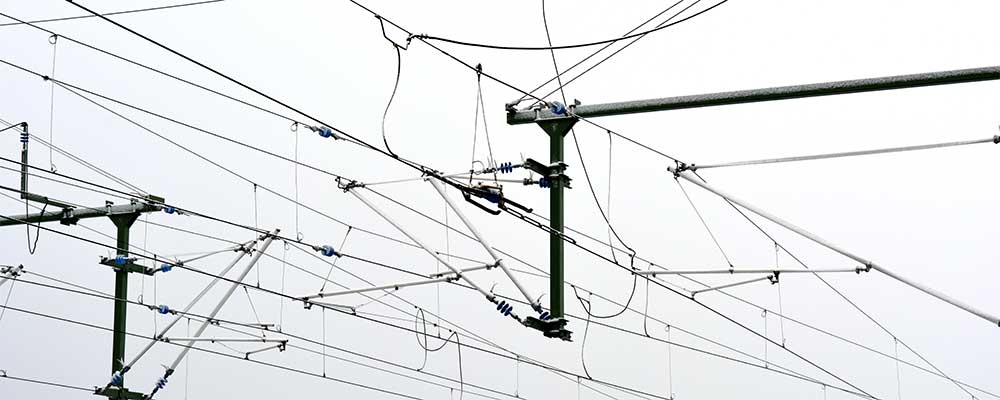
Market Trends
Driven by the expanding requirement for efficient and lasting arrangements in the medium and high power transmission and dissemination commercial sector, these long rod insulator markets are seeing consistent extension. As global energy demands rise and utilities and infrastructure developers seek advanced insulator technologies suitable for long life, low maintenance, and resilience in many climates, the time has arrived to consider these. Due to their superior performance in highly polluted and coastal areas, they are gaining popularity because resistance to pollution and moisture is key to reliability. Demand is expected to be sustained by government policies to modernize the power grid as well as to expand power infrastructure in developing regions. Moreover, investments are also taking place in advanced insulator technologies to support long-term stability, safety, and efficiency in supporting smart grids and reliable energy delivery. With the power industry in pursuit of a more resilient, adaptable, and sustainable way of energy transmission, the market for these insulators is on steady growth.
Application
- High Voltage Transmission Lines
High voltage transmission lines employ long rod polymer insulators between span towers, providing insulation and mechanical support between span towers and span towers and conductors. In such environments with high mechanical tension, they are especially suited to maintain stable transmission over long distances.
- Mountainous and Hilly Terrain
Where rugged terrain exists, they are preferred for lightweight and durable properties which reduce structural loads and simplify installation in tight, inaccessible areas.
- High Pollution Areas
Areas of high pollution like an industrial area or a coastal salt-contaminated area are suitable for it. The hydrophobic surface of BIOP refers to its ability to resist pollutant accumulation, with performance maintained and required maintenance frequency reduced.
- Galvanized Renewable Energy Installations
Wind and solar power plants typically use these insulators, for example, because they can withstand conditions such as strong winds and temperature change, common to remote renewable energy sites.
- Railway Electrification Systems are discussed.
They are used in railway systems with overhead electrification to support contact wires, via which current is transmitted to the locomotive. As shock-absorbing and vibration-resistant, they are especially suitable for installation in proximity to high-speed railway lines.
- Application for compact substation
This is an efficient space-saving form of solution for urban substations having limited space. Flexibility of installation without reducing electrical performance, or structural integrity, is afforded by its compact, lightweight design.
About Wishpower
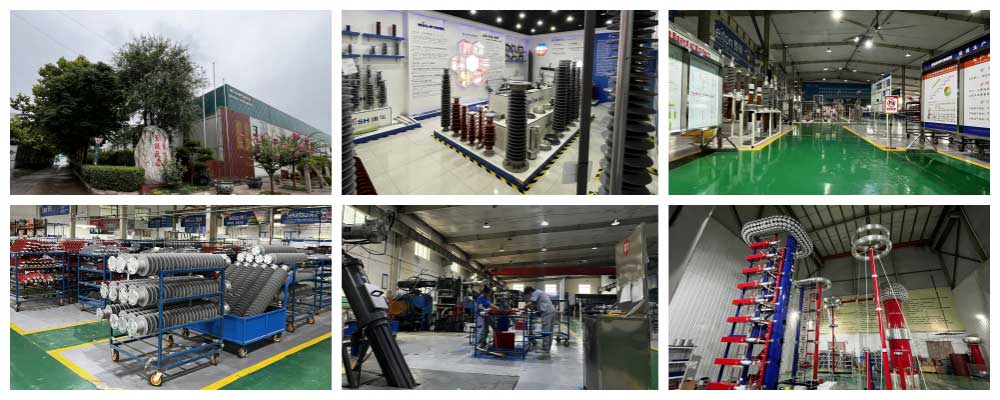
Certificate

Hot Tags: Composite Long Rod Insulator, Composite Insulator, Thailand, manufacturers, ISO factory, wholesale, KEMA, high quantity, best, price, low to high voltage






